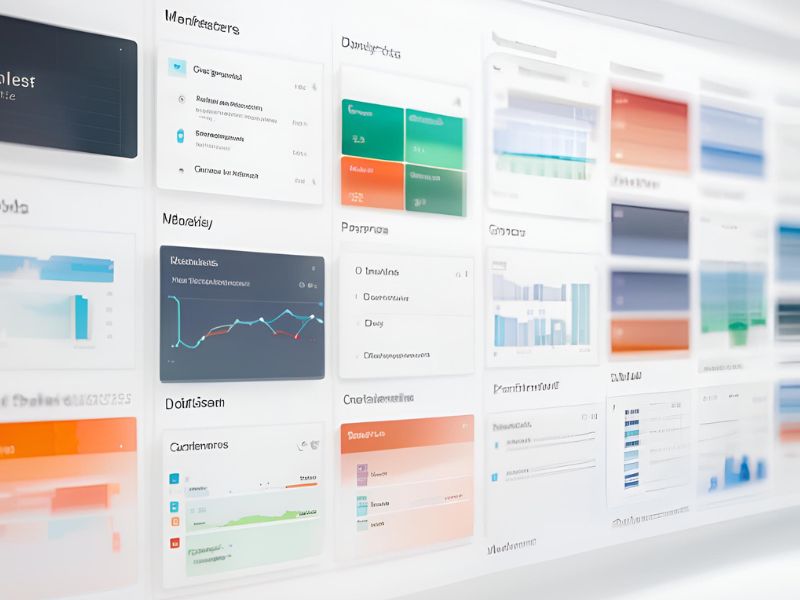Advanced DevOps Solutions
Optimize Your Delivery Pipeline with Devolity
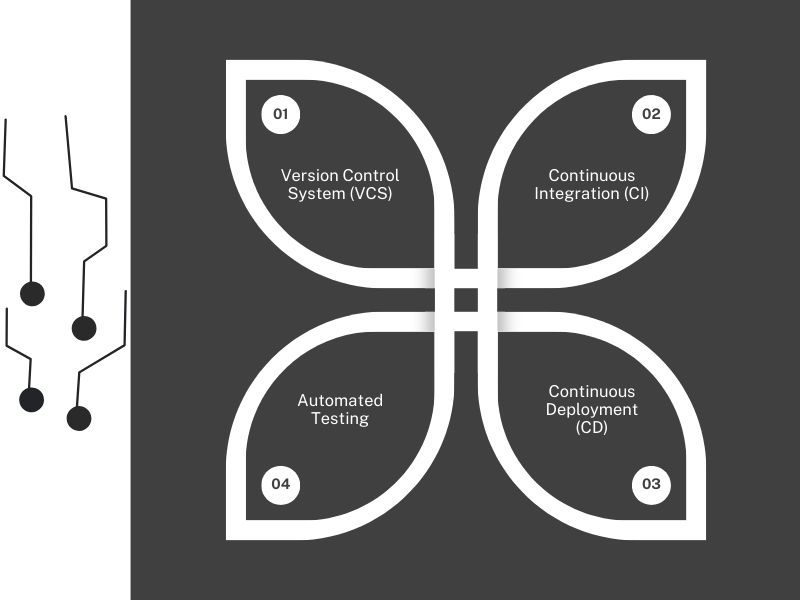
Secure Delivery Pipeline
Ensure secure code integration, testing, and deployment with Devolity robust security measures.
Fast Builds and Deployment
Accelerate software releases with modern CI/CD practices for swift updates and high-quality standards.
- Foster Collaboration
- Implement CI
- Embrace CD
- Utilize IaC
- Incorporate Monitoring
- Focus on Security
DevSecOps Integration
Secure Your Pipelines with Devolity
Embed security into DevOps processes for early issue detection and robust application protection.
Integrate Security Early
Shift security left with threat modeling and assessments during design.
Automate Security Testing
Use automated tools for continuous security compliance.
Foster Security Culture
Enhance security awareness with training and collaboration.
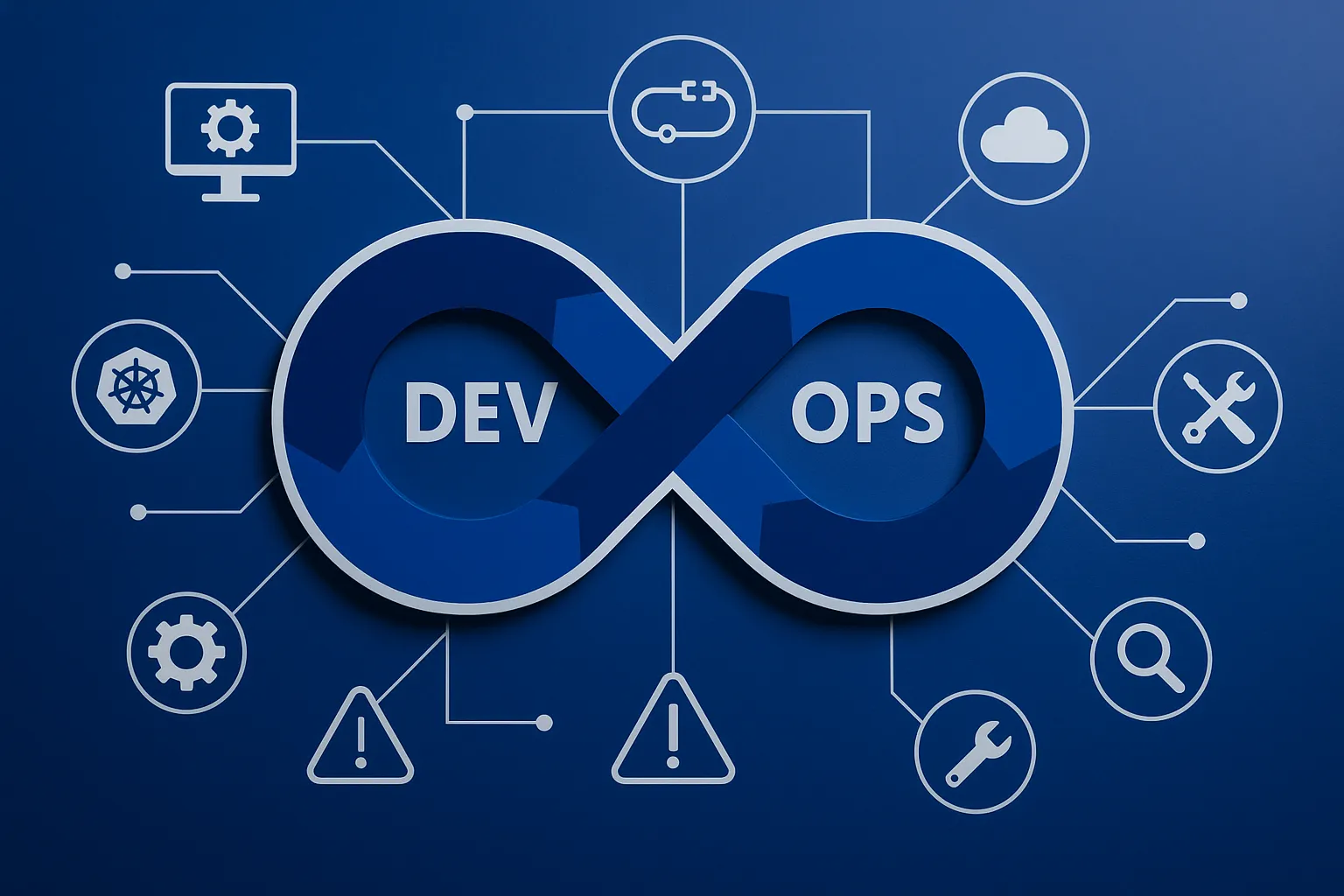
Microservices Deployment
Deploy with Docker and Kubernetes
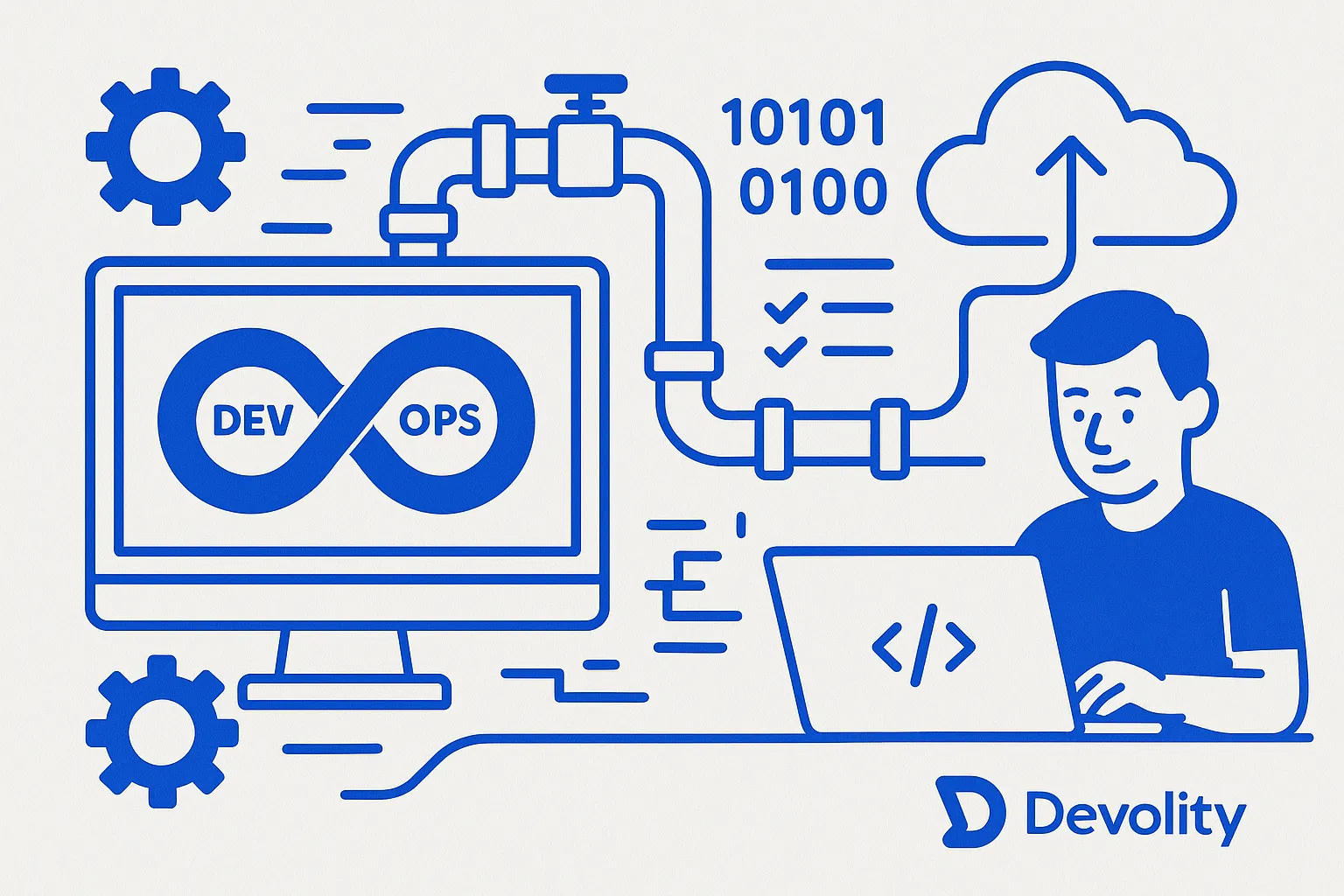
Leverage containerization for scalable, manageable applications with Docker and Kubernetes.
Docker Containerization |
Ensure consistency with Docker containers. |
Kubernetes Orchestration |
Scale applications efficiently with Kubernetes. |
Service Discovery |
Enable seamless microservices communication. |
Monitoring and Scaling |
Track and scale with Prometheus and Grafana. |
Project Development Strategy
Enhance Your Pipeline Delivery
Develop tailored strategies for project success with Devolity expert guidance.
Boost Productivity |
Minimize downtime and maintain efficiency. |
Ensure Compliance |
Meet data retention and compliance requirements. |
Regular Testing |
Validate disaster recovery solutions with periodic tests. |
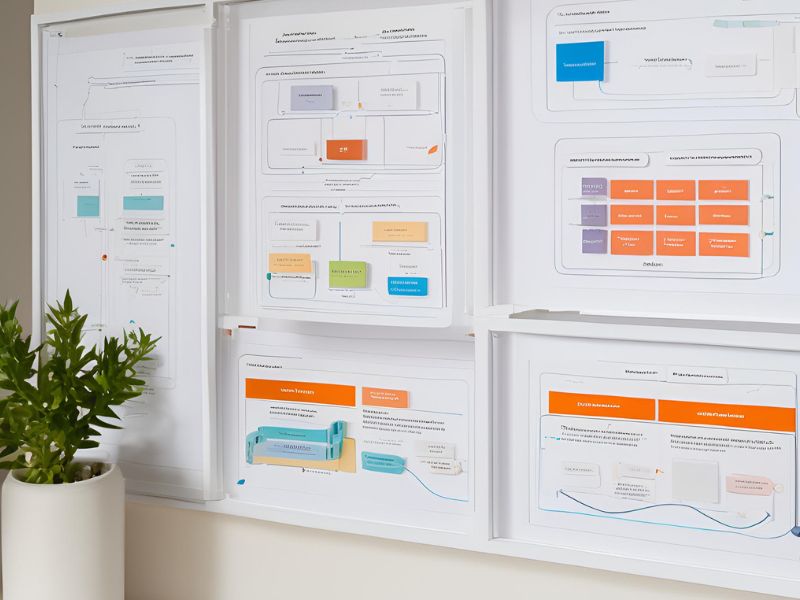
Invest in Microservices
Transform and Scale Your Projects

Scale projects with advanced DevOps solutions for rapid innovation and market adaptability.
Docker Containerization |
Ensure consistency with Docker. |
Kubernetes Orchestration |
Scale applications with Kubernetes. |
Service Discovery |
Enable seamless microservices communication. |
Monitoring and Scaling |
Track performance with Prometheus and Grafana. |
Cloud Integration
Integrate with AWS, Azure, Oracle
Define Goals |
Select suitable cloud services. |
Leverage Features |
Utilize AWS, Azure, Oracle offerings. |
Establish CI/CD |
Automate processes across clouds. |

DevOps Technology Methods
Leverage Modern DevOps Practices
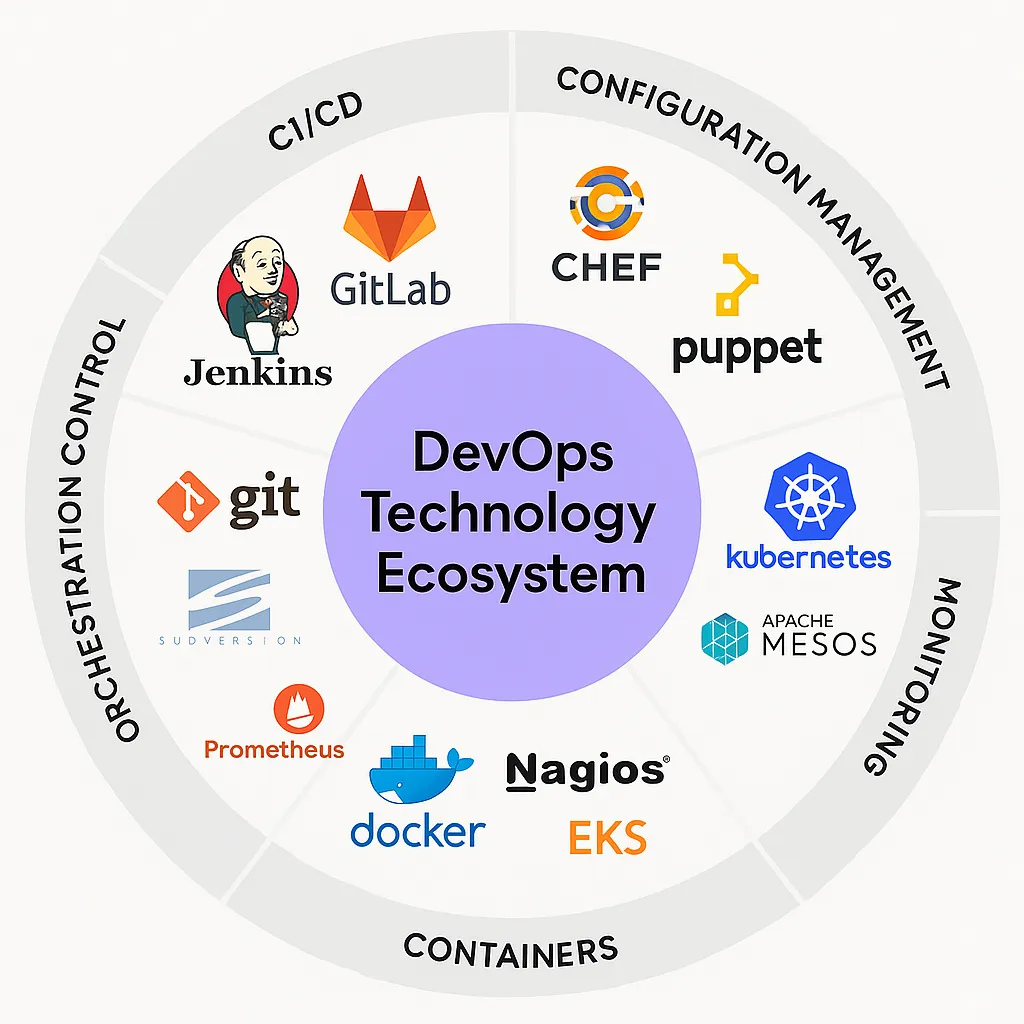
Improve project delivery and team collaboration with Devolity agile transformation services.
- Continuous Integration & Delivery (CI/CD)
- Infrastructure as Code (IaC)
- Automated Testing
- Containerization & Orchestration
- Monitoring & Logging
- Security Automation (DevSecOps)
- Collaboration & Communication
- Cloud-Native Development
Frequently Asked Questions
DevOps practices integrate continuous integration, automated testing, and infrastructure as code to streamline development workflows, reduce manual errors, and enable faster, more reliable software deployments across multiple environments.
Our DevOps transformation includes cultural change management, automated CI/CD pipeline implementation, containerization strategies, microservices architecture design, and comprehensive monitoring solutions tailored to enterprise scale and complexity requirements.
We utilize Docker, Kubernetes for containerization, Terraform for infrastructure automation, AWS/Azure cloud platforms, Ansible for configuration management, and advanced monitoring tools like Datadog and New Relic for comprehensive observability.
Organizations typically achieve 60% faster time-to-market, 90% reduction in deployment failures, improved system uptime, enhanced security posture, and significant cost savings through automated processes and optimized resource utilization.
We implement collaborative workflows through shared responsibility models, establish clear communication protocols, provide comprehensive training programs, and create transparent feedback loops using integrated toolchains and agile methodologies for sustained cultural transformation.
Our DevOps engineers design phased migration strategies, create hybrid deployment models, and implement gradual automation processes that preserve critical business operations while modernizing infrastructure without service interruptions or data loss risks.
Discover The Reasons Behind Selecting Us.
Brands who trust on Devolity










